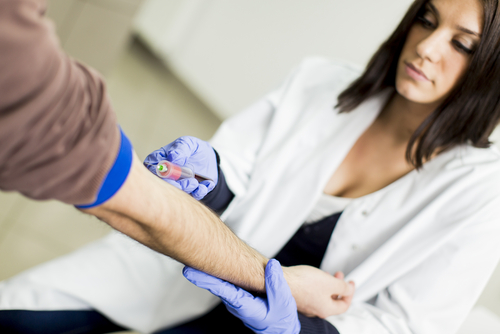What Specialty Fits You Best?
Courtesy Texas Health Presbyterian Hospital-WNJ (THP-WNJ), Texoma LIVING WELL Magazine
Everyone needs a doctor. The problem: the medical expert you need to diagnose and fix what ails you may be harder to find if you don’t know what they do. Below is a basic description of some different types of doctors and the areas they specialize in.
Endocrinology
An endocrinologist diagnoses and treats disorders of glands and hormones. Specific organs in the endocrine system include the thyroid, the parathyroid, the adrenal glands, the testes, the pancreas and the pituitary gland. Endocrinologists also treat disorders due to the over- or under-production of gland hormones such as hyperthyroidism, hypothyroidism, Hashimoto’s Thyroiditis, hypoglycemia, diabetes, Addison’s disease, Cushing’s syndrome, and goiter.
Gastroenterology
A gastroenterologist is a doctor who specializes in the diagnosis and treatment of disorders of the gastrointestinal tract, including the esophagus, stomach, small intestine, large intestine, pancreas, liver, gallbladder, and biliary system.
Gastrointestinal tract tests, such as endoscopy (looking for tumors, bleeding, ulcers and cancer) and colonoscopy (looking for tumors, polyps, inflammation, bleeding, ulcers and cancer in the colon) are preformed or interpreted by a gastroenterologist.
General Surgery
General surgery is a surgical specialty that focuses on abdominal organs such as the stomach, small bowel, colon, liver, pancreas, gallbladder and bile ducts. They also deal with diseases involving the skin, breast, soft tissue, and hernias. These surgeons deal mainly in the torso.
Internal Medicine
An internist is a doctor who specializes in internal medicine for primarily adults, and does not practice surgery. Internal medicine is the branch of medicine that deals with the diagnosis and treatment of non surgical diseases. Today, a general internist is often called a “primary care doctor.” The internist’s training includes emergency medicine, hospital medicine, geriatrics, and critical care medicine. Internists do physical exams.
Interventional Cardiology
An interventional cardiologist is a cardiologist who has undertaken specialized training to perform interventional procedures on the heart. Usually this consists of placing stents in the arteries of the heart (coronary arteries) to open up blockages. This helps restore blood flow to patients who are having heart attacks. Interventional cardiologists may also perform other procedures on the heart and body’s vasculature, such as opening up blocked heart valves without the need for open surgery or treating blockage in peripheral arteries, such as the carotid arteries, leg arteries and kidney arteries.
Interventional Cardiologists do tests such as:
•Electrocardiogram
•Doppler echocardiogram
•Stress test including nuclear stress test
•Cardiac catheterization
•Angioplasty
Neurology
A neurologist diagnoses, treats and manages nervous system disorders and injuries, which include the brain, nerves, and spinal cord. They also specialize in brain disorders such as Alzheimer’s, Parkinson’s, seizure disorders, multiple sclerosis, meningitis, epilepsy, stroke, Guillain-Barré, myasthenia gravis, brain tumors, and brain infections. A neurologist also treats brain injuries, coma, and hypoxia.
Psychiatry
A psychiatrist is a doctor who specializes in the branch of medicine that deals with the study and treatment of mental, emotional, and behavioral disorders.
For nearly 100 years, Texas Health Presbyterian Hospital-WNJ (THP-WNJ) has been dedicated to improving the quality of life for the communities in this area. The 241-bed hospital offers the total spectrum of health care services, from birth through maturity. More than 200 physicians on the medical staff – along with hundreds of dedicated health care professionals – serve the area communities with compassion and commitment.
With achievements such as being the only Cycle III Accredited Chest Pain Center in the region, along with Gold and Gold Plus awards from the American Heart and American Stroke Associations, you can rest assured that the healing hands and caring hearts of THP-WNJ are fully equipped to keep this community a healthy one.
For more information on Texas Health Presbyterian Hospital-WNJ (THP-WNJ) call us at 903-870-4403 or visit our website at www.wnj.org.



